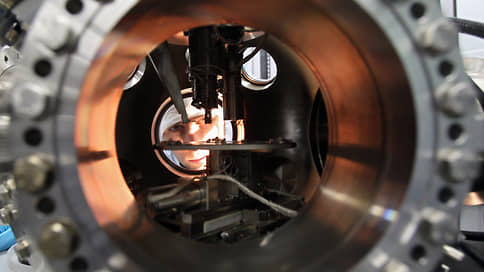heads of universities and scientific organizations assessed the situation with young personnel at 3.47 on a five-point scale
[ad_1]

Heads of universities and scientific organizations assessed the situation with young personnel at 3.47 on a five-point scale. These are the results of a survey conducted by HSE experts as part of the Doing Science in Russia study. The head of the Ministry of Education and Science, Valery Falkov, told Kommersant that the measures taken by the state will make a scientific career more attractive in the eyes of young people. Scientists themselves are confident that close cooperation between universities and research institutes will help rejuvenate science.
Experts from the HSE Institute for Statistical Research and Economics of Knowledge amounted to a snapshot of expectations about the future of Russian science. They interviewed the leadership of 577 universities and academic institutions. Respondents rated the situation with scientific personnel at 3.47 points out of 5. This, however, is even more positive than in a similar study in 2017 (then it was 3.24 points). According to the survey, now Russian science is provided with young people by 3.43 points; study participants predict this indicator will rise to 3.71 by 2025.
According to the results of the study, over the past five years, the opportunities for increasing the salaries of researchers have grown – from 2.90 points in 2017 to 3.37 points in 2022. Respondents hope for further progress in this area in the future of three years – up to 3.59.
Interestingly, the opinions of academic and university science differed on the issue of international cooperation. Representatives of scientific institutions expect a decrease in the intensity of joint work with foreign researchers – from 2.99 to 2.69 points. However, the leadership of universities hopes to develop cooperation with “friendly countries” – from 3.07 now to 3.35 in the future.
Director of ISSEK HSE Leonid Gokhberg listed a number of problems that need to be solved in order to attract young people to science. These are salaries, provision of preferential housing, a decent social package, reduction of administrative barriers and uninterrupted access to advanced scientific equipment and information. Also, Mr. Gokhberg told Kommersant that special attention should be paid to “developing measures to attract talented researchers from abroad to Russia.” To do this, according to the expert, it is necessary to create “barrier-free smart visa regimes that provide for adequate adaptation mechanisms.”
The head of the Ministry of Science and Higher Education, Valery Falkov, told Kommersant that Russia pays special attention to “raising the prestige of the profession of a scientist and the attractiveness of a scientific career.” “Thanks to the state program Priority 2030, hundreds of interesting scientific projects are being implemented at universities, modern equipment is being purchased, research teams are being created,” Mr. Falkov assured. “And within the framework of the national project Science and Universities, 740 youth laboratories have been created throughout the country.” The head of the Ministry of Education and Science also noted that “to involve leading scientists from all over the world in Russian science, the mega-grant program has been significantly expanded – in particular, the size of grants and terms of support have been increased.” Mr. Falkov is sure that all this will allow “in the future to make science even more attractive in terms of career prospects”.
Alexey Maleev, director of the MIPT IT Education Development Center, said that the state “support for the research aspirations of young people” begins even at the stage of master’s studies. “In physics and technology, most departments cooperate with enterprises and research institutes. And it is possible to open a master’s program only if students are guaranteed a decent scholarship – this is all of interest to young professionals,” says Mr. Maleev. However, he is sure that scientists are driven not only by financial interests: “While you are young, you want to feel the importance of the tasks being performed. They must be interesting and unusual. So young people are motivated by the opportunity to implement their ideas.” Alexey Maleev assured that “in the last decade, step by step, we have been paying a lot of attention to the prestige of the profession of a scientist,” and expressed the hope that “it will continue to be so.”
And about. Andrey Sobolevsky, director of the A. A. Kharkevich Institute for Information Transmission Problems of the Russian Academy of Sciences (IITP), notes that young people usually get to research institutes from universities. “Properly established cooperation between universities and research institutes is one of the most effective measures to support scientists,” he said, lamenting that this is often forgotten. The head of the IPPI also called the system of grants for young scientists from the Russian Science Foundation and the program of housing certificates effective. Nevertheless, Mr. Sobolevsky admits that “talented specialists sometimes go to technology companies, since salaries are still higher there.” “Of course, we are sad about them, but everyone decides for himself what suits him best – academic freedom with less money or a tougher corporate culture, but with more money,” the scientist added.
[ad_2]
Source link








